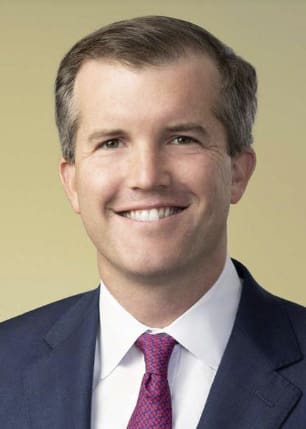Foreign investment plays an important role in maintaining the US space and satellite industry, but their participation, even from allied partners, requires Defense Counterintelligence and Security Agency approval for companies performing on classified contracts. Morrison Foerster’s James Brower and Charles Capito map the practical realities of FOCI mitigation, from the challenge of removing problematic outside directors who may complain to the government about improper control to limitations on parent-affiliate collaboration that can undermine the business rationale for investment.
In early 2025, the Trump Administration revived the National Space Council, an organization within the executive office of the president, that helps develop and promulgate space policy for the US government. And in August 2025, President Donald Trump signed an executive order to streamline regulations in the commercial space industry, hoping to ensure the US maintains its leading role in the commercial use of space. The order, the revival of the National Space Council and the administration’s renewed focus on space and space-related activities signals the potential for new opportunities for foreign space and satellite companies.
Foreign investment plays an important role in maintaining the US industrial base, including those portions that perform on classified contracts, as well as the vitality of the space and satellite industry. Investments by US allies and partners create thousands of jobs and significant advantages for the United States.
But foreign investments — even from allied partners — are not free from scrutiny. The Committee on Foreign Investment in the United States (CFIUS) has long scrutinized foreign investments in US businesses. In parallel, the Defense Counterintelligence and Security Agency (DCSA) analyzes foreign investment into the US industrial base that performs on classified contracts (i.e., with facility security clearances) for foreign ownership, control or influence (FOCI). DCSA may also soon be assessing foreign investments in all companies with defense contracts more generally.
As the industry sector becomes more active, space and satellite companies should fully appreciate and account for DCSA’s FOCI process and requirements, as many of their supply chains involve specialized equipment, information, and materials, that are often supplied by both foreign affiliates (i.e., other entities within the corporate family) and foreign third parties, issues of likely interest to DCSA.
What is foreign ownership, control, or influence mitigation and when is it imposed?
FOCI occurs when a foreign person or entity has the power, directly or indirectly, to determine, direct or decide matters affecting the management or operations of a company performing on classified contracts in a manner that may result in unauthorized access to classified information or may adversely affect the performance of classified contracts. The DCSA has enumerated the following factors it considers when determining if a company is “under FOCI”:
- The source, nature and extent of FOCI, including, but not limited to, whether a foreign interest holds a majority or substantial minority position in the company.
- The foreign interest’s record of economic and government espionage against US targets.
- The foreign interest’s record of enforcement and/or engagement in unauthorized technology transfer.
- The foreign interest’s record of compliance with pertinent US laws, regulations and contracts.
- The type and sensitivity of the information to be accessed.
- The nature of any relevant bilateral and multilateral security and information exchange agreements.
- Ownership or control, in whole or in part, by a foreign government.
- Any other factor that indicates or demonstrates a capability on the part of foreign interests to control or influence the operations or management of the business organization concerned.
DCSA evaluates FOCI based on the totality of the circumstances. And, although there are some bright lines as noted below, DCSA has broad discretion to determine the nature of the FOCI and what, if anything, it can do to address the FOCI.
A company operating under FOCI is not eligible for a facility security clearance unless and until effective security measures have been put in place to negate or mitigate FOCI. DCSA uses governance and operational tools to mitigate FOCI. The governance-related measures to mitigate foreign ownership include, from least intrusive to most: board resolutions (BR), security control agreements (SCA), special security agreements (SSA), voting trusts (VT) and proxy agreements (PA).
What are the practical realities of FOCI?
Generally, there are two categories of FOCI mitigation agreements: those that mitigate minority ownership positions (i.e., BR, SCA) and those that mitigate majority ownership or control positions (i.e., SSA, PA, VT). Mitigation agreements that mitigate minority ownership interests are used for companies in which the foreign person or entity does not own or control the entity but can be necessary where the foreign interest has an interest of 5% or more in the cleared company. These interests are usually mitigated with a board resolution (BR) or a security control agreement (SCA), unless the foreign stakeholder has additional control rights that require additional mitigation, such as veto power over the board decisions.
- A BR is an acknowledgment passed by the company’s board of directors or equivalent that identifies the foreign investors, excludes them from access to classified information and precludes them from involvement in classified programs. In this context, the foreign investor does not sit on or have the right to appoint a member to the board.
- An SCA is used if the foreign investor does not own or control the cleared company but is entitled to representation on the board. The foreign investor is able to participate on the board but is denied access to classified information under this mitigation agreement, which also requires at least one “outside director.”
Mitigation agreements that mitigate majority ownership or controlling interests are used for companies in which the foreign person or entity owns or controls the company. These ownership interests are usually mitigated with a special security agreement (SSA), proxy agreement (PA) or voting trust (VT).
- An SSA is an agreement that imposes various industrial security measures, denies access to classified information and preserves the foreign investor’s input in the business management of the company but without permitting the foreign investor to control the board.
- A PA is an agreement through which the foreign investor relinquishes most rights associated with ownership of the company by conveying its rights to “proxy holders,” who are individuals nominated by the company, approved by DCSA and holding personnel security clearances at the level of the facility’s clearance.
- A VTA is similar in effect, except that under a VT, the foreign investor transfers legal title in the company to the voting trustees, who are approved by the US government.
The form of the mitigation agreement is especially important for space and satellite companies, as the agreements will impact and potentially limit collaboration between parent entities and affiliates.
In addition to these agreements, mitigated entities must account for (i) affiliated operations and services that are provided amongst the corporate family through an affiliated operations plan (AOP), (ii) the protection of classified and export-controlled information through a technology control plan (TCP), (iii) electronic communications and networks through an electronic communications plan (ECP), (iv) visits from affiliates and foreign nationals through a visitation plan and (v) proximity to affiliates through a facilitates location plan (FLP). These plans, especially for space and satellite companies, are particularly important, as there may be significant collaboration amongst affiliates.
In recent years, DCSA has also taken steps to mitigate FOCI stemming from commercial and affiliate relationships, but in those instances, the nature of the mitigation depends on the facts and circumstances and will be bespoke.
Problems that arise
Operating under a FOCI mitigation agreement can be complex and problematic. The normal checks and balances that exist between a parent and subsidiary are materially different when a subsidiary is FOCI-mitigated, especially under an SSA or PA/VT. Although the regulatory framework and DCSA are aligned in wanting to see the company succeed, the practical realities of FOCI mitigation can deprive a parent its usual tools to address a floundering subsidiary and limit the subsidiary’s ability to avail itself of many potential synergies with its affiliates’ systems, technologies and workforce. Understanding these dynamics and thinking about how to mitigate those risks are critical and often best addressed while structuring and negotiating the FOCI mitigation.
Shareholder may not be able to address poor performance
Those empowered by the agreements — the outside directors, proxy holders and voting trustees — will play an important role in the implementation of the FOCI mitigation agreements. Their fiduciary duties are to ensure the company is operating, first, in a manner believed to be in the best interests of US national security and, second, in a manner in the best interests of the company and its shareholders. This construct can lead to friction.
As noted above, FOCI mitigation agreements insulate cleared contractors from foreign ownership, control or influence. By their very nature, FOCI mitigation agreements are designed to limit the ability of the foreign investor to engage with the cleared company. Accordingly, there can be scenarios where a foreign investor or a foreign owner may not be able to address poor performance of a cleared entity operating under a FOCI mitigation agreement. For example, if a company is operating under an SSA, the foreign owner will not be able to direct the company to take or not take most actions. And if the outside directors are not operating the board effectively, the company’s performance — and shareholders’ interest — will suffer.
Parent entities cannot effectively and efficiently collaborate with mitigated entity
Additionally, and because FOCI mitigation agreements are designed to exclude foreign investors from influence over the cleared company, there may be limitations on how the company can collaborate with the cleared entity, which may in turn negatively impact the business rationale for foreign investors’ interest in the company. These limitations may also extend to collaborations amongst affiliates, which may also frustrate the business rationale for the transaction.
Parent cannot effectively and efficiently remove and replace independent directors
FOCI mitigation agreements — SSA and PA/VTs — come with standard terms that make it difficult and, in some cases, impracticable to remove and replace outside directors. In most cases, the parent and shareholder must provide prior notice to the government before removing a problematic outside director. That director, if they feel wronged by or object to the removal (which is quite possible), may complain to the government that the parent is attempting to assert improper control and jeopardizing national security. Regardless of whether such assertions have a basis, it is not a position any parent wants to be in with the government.
Ways to mitigate
Before problems arise, foreign investors should be thoughtful in
Structuring US operations
Foreign space and satellite companies performing on classified contracts should take care in how they structure their operations. FOCI mitigation agreements will limit a foreign investor’s influence over the cleared entity, so foreign investors should take these potential limitations into account when structuring the operations. One approach may be to assess whether the entity’s classified business can be carved out to a lower-tiered subsidiary below where the commercial and non-classified work takes place. This can limit the financial and business risk if the FOCI-mitigation is over only a lower-tiered subsidiary, rather than the entire or a large part of the US operations. This approach, however, may only be viable if the subsidiary is generally self-sufficient from a revenue and operational perspective.
Selecting management — measure twice, cut once
As described above, management will have an outsized role in the operations of the company. Unlike unmitigated entities, a cleared entity operating under a FOCI mitigation agreement will be effectively walled off from an owner’s inherently foreign influence. Accordingly, the management of the US company will have oversight limited by the terms of the agreement. Companies should take great care in assessing, selecting and empowering management prior to implementation. For companies in the space and satellite sector, it will be important that the outside directors understand, for example, the capital-intensive nature of R&D and product development and testing, as well as the need to collaborate among affiliates.
Negotiating your affiliated operations plan
In addition to considering the structure and management of the company, foreign investors should carefully think through the services they need to provide to and receive from the cleared entity. Generally, there are two options to share services between a cleared company and its uncleared affiliates (US or foreign). First, the parties can commit the time and resources on the front end to identify operational, technical or administrative synergies and efficiencies the cleared company needs to have or would benefit from and engage early with the government to ensure the company’s AOP permits those activities, subject to recordkeeping or reporting requirements. Or parties can more quickly execute a version close to the government’s template AOP, which generally prohibits or requires prior approval of most activities between affiliated entities, and then try to work within those restrictions or seek relief down the road if (and more likely when) problems arise. The first option is almost always the better one.
After problems arise
Communicate firmly with management about responsibilities and duties
Although it is subordinate to their duty to act in the best interests of US national security, outside directors still have a duty to act in the shareholders’ best interests. Actions that are difficult for or not beneficial to the cleared company (e.g., shutting down a manufacturing line or cutting workforce) are not enjoyable for anyone, but that does not mean those actions are not in the best interests of national security. In other words, parents should communicate their expectation that outside directors not reflexively equate the best interests of the subsidiary with the best interests of national security. There are circumstances when the shareholders’ interests are contrary to the subsidiary’s own interests and also either consistent with, or neutral to, national security.
Understand your rights under the mitigation agreement
Each mitigation agreement will contain a thorough description of the foreign parent’s rights under the agreement, which may also be negotiated with DCSA. For example, the SSA template allows foreign parents to “prevent the merger, consolidation, reorganization, or dissolution . . . [or] the liquidation, sale or pledge of all or substantially all of the assets of the Company; or a voluntary filing for bankruptcy or liquidation.” And if the foreign parent holds them, these rights will continue after the implementation of the mitigation agreement.
Don’t be afraid to engage directly with the security agency
Although DCSA’s equities are to ensure the protection and safeguarding of classified information, shareholders — including foreign investors and owners — are a critical part of the program and processes. Early and transparent dialogue between DCSA and the foreign owners can be helpful and effective to build trust and, more importantly, avoid trust deficits. If DCSA is put in a position to resolve disputes or disagreements, its decision will always reflect its mandate, but, again, the cleared company and its outside directors are not infallible. Building and maintaining trust with the regulator will help ensure DCSA’s decisions do not unnecessarily favor the cleared company when the shareholder’s position furthers or at least does not negatively impact national security.




 James Brower
James Brower Charles Capito
Charles Capito







